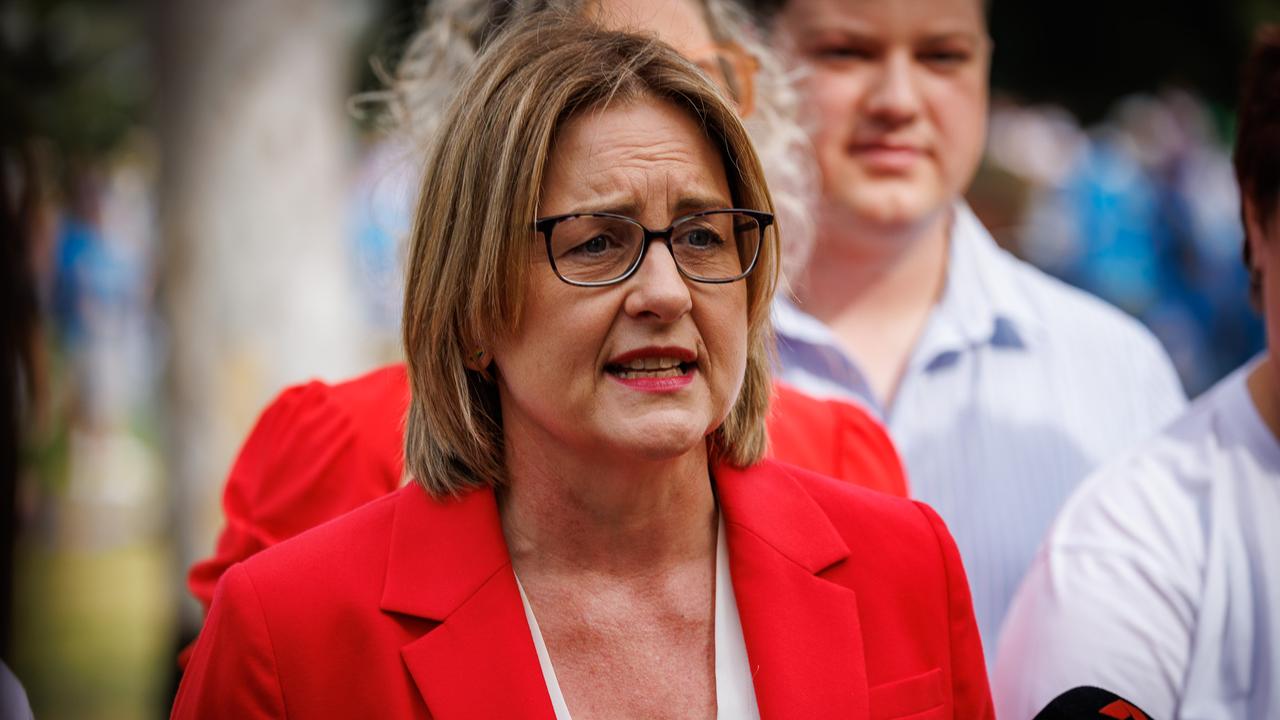Melbourne’s Albert Park College aircon fiasco exposes Australia’s great climate paradox | David Penberthy
There’s a yawning chasm between meaningful gestures and practical solutions that was laid bare again this week, writes David Penberthy.
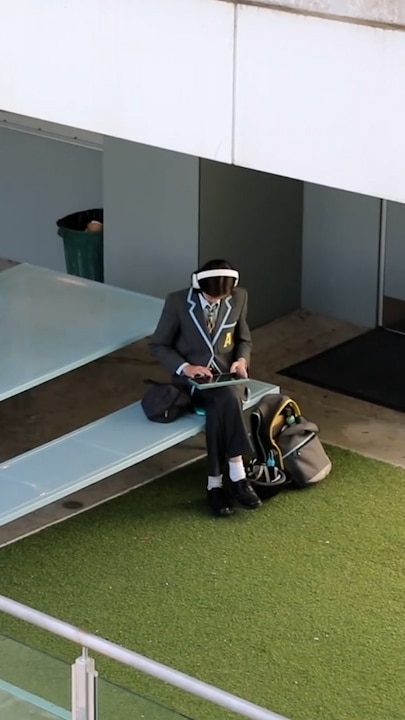
Opinion
Don't miss out on the headlines from Opinion. Followed categories will be added to My News.
There’s a high school in Melbourne which encapsulates the lunacy of Australia’s energy landscape and the yawning chasm between meaningful gestures and practical solutions.
Its young occupants got a taste this week of what virtue signalling feels like on a hot day.
Victoria’s Herald Sun reported this week on the case of Albert Park College which has won all sorts of accolades for eschewing traditional energy-sapping airconditioning for what’s known as “passive cooling”.
The school’s sustainability statement explains that its “state of the art campus buildings” feature “recycled building materials, sensor lighting, passive cross ventilation and data collection of energy and resource usage”.
It all sounds terrific except there’s one problem.
It doesn’t work on hot days.
And by “hot” I don’t mean insanely hot, but normally hot for an Australian summer, as was the case in Melbourne last week when the temperature hit a perfectly routine February high of 37C.
On that day passive cooling became non-existing cooling.
It was decided that the best way to deal with the situation was to send the kids home. The school with passive cooling stopped doing any schooling at all.
The Herald Sun quoted students saying it was “a billion degrees” in the classroom and railed at the school “caring more about the environment than its own students”.
One parent said she was “livid” at the decision to send children home early and the lack of adequate cooling.
“Airconditioning is against the school’s ‘green policy’,” she said.
“We would love to hear the reaction if government pulled airconditioning from public service offices.
“I’m stunned that kids are having their school day cut short and missing out on valuable lesson time because of this.”
It’s a good point that last one.
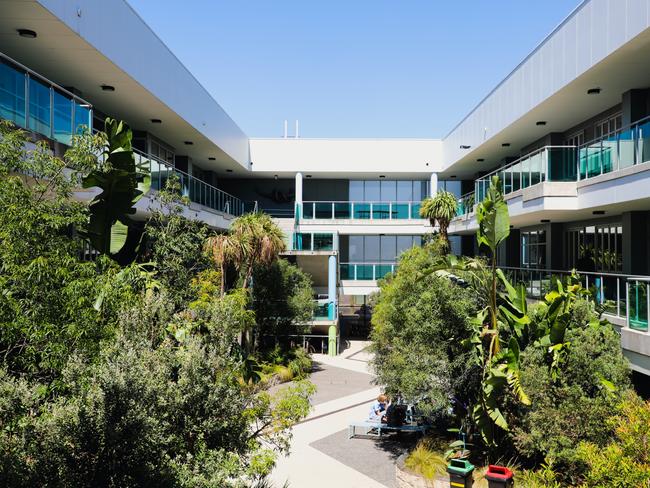
I doubt the Victorian Education Department has foregone an airconditioner, or if its former bureaucratic inhabitants, free to work from home indefinitely in that economically destitute workers’ paradise, are doing Zoom meetings in their study without the cooling on.
The logic behind embracing passive cooling instead of airconditioning is as follows.
If we don’t act now in the face of a climate emergency, life will soon become so hot as to be unbearable.
How has that played out at Albert Park College?
By embracing ineffective technology in response to a climate emergency, life at that school has become so hot as to be unbearable.
There is no doubt that renewable energy can play a huge role – possibly even the sole role – in meeting our future energy needs.
It is also plainly obvious that we are not yet at that point (which, by the by, is a big argument for pursuing nuclear).
The nation’s food industry has now openly declared that Australia cannot afford to adhere slavishly to its 82 per cent renewables target, unless we want to send businesses and households broke.
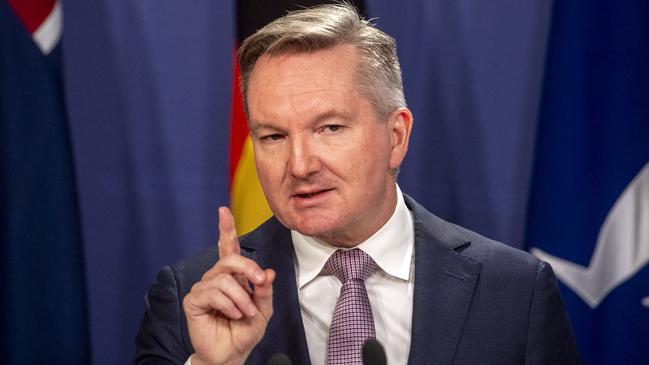
The nation’s peak food distribution organisation – the people who own and pay for all those massive fridges and freezers – broke rank this week to call for an immediate rethink in Canberra as to how we generate power while we are still transitioning to a renewables future.
They even went so far as to suggest that instead of mothballing coal stations the moment they look a bit dated, we invest to upgrade them.
They also argued that we should be much more bullish about the use of gas.
Independent Food Distributors Australia chief executive Richard Forbes provided two statistics that cover the past two years while Australia has been labouring under the planet-loving leadership of Energy Minister Chris Bowen.
The first – power bills for food businesses have risen more than 50 per cent.
The second – insolvencies for food businesses have almost doubled.
I read a piece on news.com.au earlier this week about some British “influencer” in Sydney who has produced a series of videos explaining what life’s like in Australia for her Pommy mates back home.
She raves about Twisties and is particularly keen on the Arnott’s Mint Slice.
The worst thing she says about Australia? The price of fruit and vegetables, citing a piece of broccoli which set her back $7 at a Sydney supermarket.
Aussies used to talk about how expensive things were in England; now, Brits are coming here and warning their friends back home that in this energy-rich country, you might want to sell one of your kidneys in order to buy a fruit salad.
How did it get to this? More so than anything, power bills.
If you think about that piece of broccoli, every single person involved in cultivating it from seed, housing it in a greenhouse, harvesting it, packing it, transporting it and selling it – all of them have to pay a power bill.
You can describe this with the same sentence construction to explain the logic behind the Albert Park College and its non-operational passive cooling system.
The argument goes that if we don’t act now and embrace renewables in the face of a climate emergency, arable land will become so depleted that food will be unaffordable.
What’s happened instead?
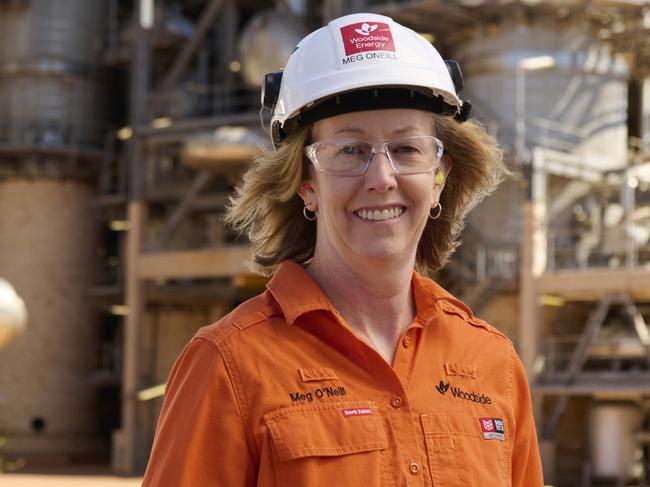
By acting in the face of a climate emergency and subjecting business to insurmountable cost increases, food is at risk of becoming unaffordable.
This is what feel-good thinking looks like in real terms.
No wonder that Woodside CEO Meg O’Neillwas so bleak when she ventured to Melbourne this week, not far from Albert Park College in fact, where she said that the state’s decade-long fossil fuel fatwa had made the state a no-go zone for investors.
“The reality is that the state that was built on the back of oil and gas is now at this stage,” Ms O’Neill said in Melbourne.
“Ideology has stood in the way of sensible energy investment. In times of crises things can move quickly. We’d like to see them move before you get a crisis.”
More Coverage
Originally published as Melbourne’s Albert Park College aircon fiasco exposes Australia’s great climate paradox | David Penberthy




